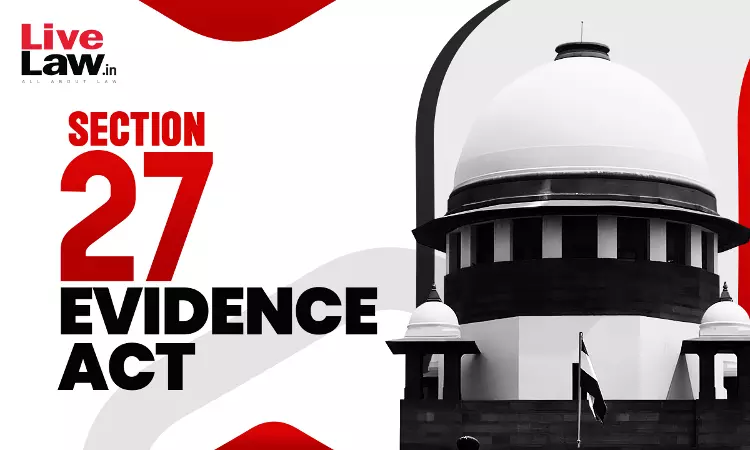Section 27 Evidence Act Vulnerable To Abuse, Courts Must Be Vigilant : Supreme Court
Gyanvi Khanna
5 Jan 2024 9:02 AM IST

Next Story
5 Jan 2024 9:02 AM IST
The Supreme Court, in its verdict delivered on January 03, while making somepertinent observations regarding Section 27 of the Evidence Act, also cautioned that the police frequently use this provision and the courts must be vigilant about its application. “Section 27 of the Evidence Act is frequently used by the police, and the courts must be vigilant about its application to...
